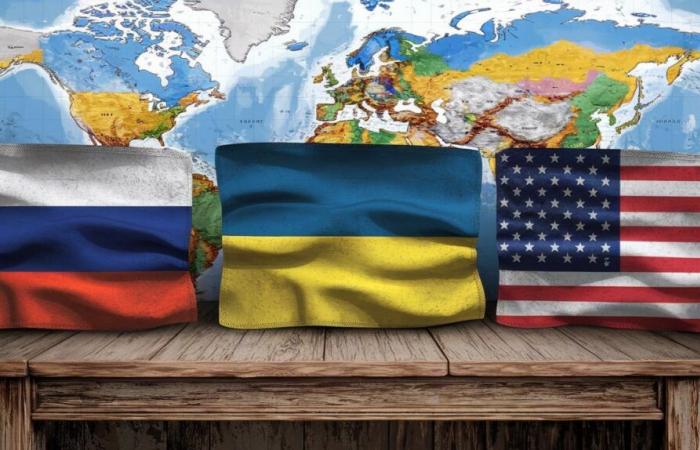Russia expects concrete actions from Donald Trump regarding the conflict in Ukraine. The head of Russian diplomacy Sergei Lavrov welcomed certain comments by the American president-elect, but…
While the world holds its breath awaiting the inauguration of Donald Trump, Russia is carefully scrutinizing the first statements of the future tenant of the White House concerning the Ukrainian file. Sergei Lavrov, Russian Minister of Foreign Affairs, welcomed certain comments by the American president-elect on Tuesday, seeing them as a welcome recognition of “realities on the ground”. However, Moscow is now waiting for Trump, once officially in charge, to clearly formulate his position on this conflict which has been tearing Ukraine apart for almost three years.
Russia in a position of strength on the Ukrainian terrain
For the Kremlin, any peace agreement in Ukraine must necessarily take into account the current situation on the front. A barely veiled way of recalling that Russia, with its military advances, now controls nearly 20% of Ukrainian territory. Moscow therefore does not seem willing to return the conquered regions, starting with the Crimean peninsula annexed in 2014.
Trump, the providential man to resolve the crisis?
Since his surprise election last November, Donald Trump has raised many hopes on the Russian side. The real estate magnate has indeed promised to quickly resolve the Ukrainian conflict, without revealing his strategy. A tempting prospect for the Kremlin, which says it is ready to meet the new American president but expects “concrete initiatives” from him.
NATO, a bone of contention between Moscow and Washington
At the heart of tensions, the question of Ukraine’s membership in NATO continues to crystallize disagreements. Last week, Donald Trump accused his predecessor Joe Biden of having opened the way for the integration of kyiv into the Atlantic Alliance, in fact helping to precipitate the Russian offensive. Words which hit the mark in Moscow, which was very upset against the promise of membership made to Ukraine in 2008 by NATO countries.
“At one point, Biden said: They should be able to join NATO. Well Russia had someone on their doorstep, I can understand the (Russian) feeling about that.”
-– Donald Trump
But despite these encouraging statements in the eyes of the Kremlin, the United States and Germany remain reluctant to take the plunge, fearing that such a decision would drag NATO into open conflict with Russia.
Greenland, a new geostrategic playground?
Another sensitive issue mentioned by Sergei Lavrov: the case of Greenland. Faced with the desire for annexation brandished by Donald Trump, the head of Russian diplomacy called for “listening to the Greenlanders”. A position that is surprising to say the least, when we know that Moscow hardly took into account the opinions of local populations in Crimea or in the Ukrainian Donbass, before claiming their attachment to the Russian motherland.
At the dawn of what promises to be a major redefinition of American-Russian relations, only one certainty remains: the Ukrainian issue, like many other points of friction, should give rise to intense diplomatic negotiations. It remains to be seen whether Donald Trump, a fine negotiator, will manage to move the lines where his predecessor Barack Obama failed for eight years.



